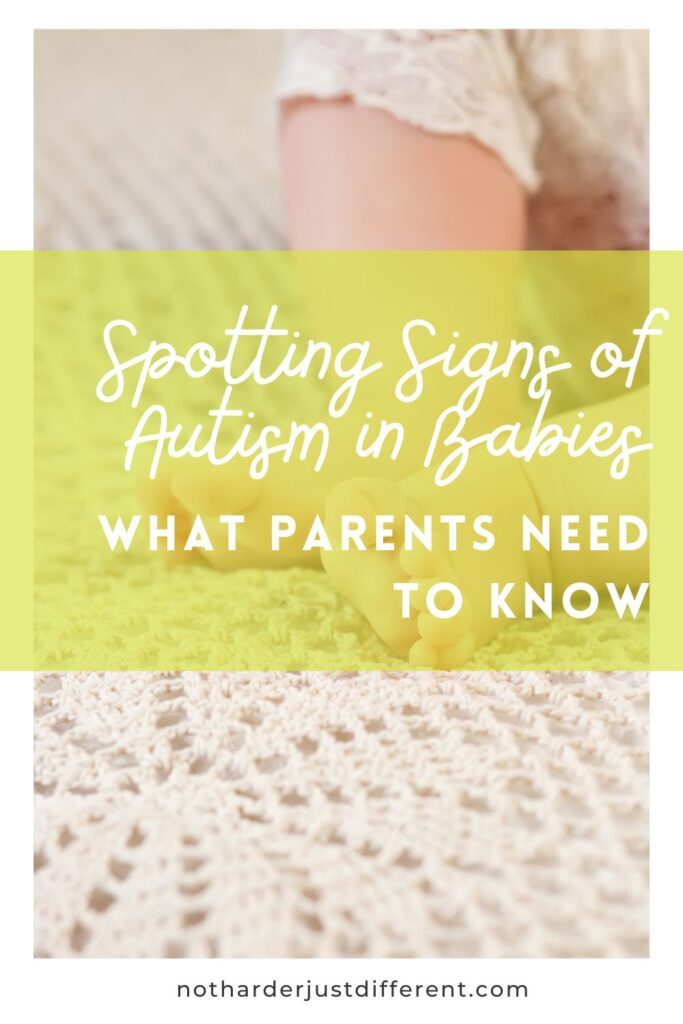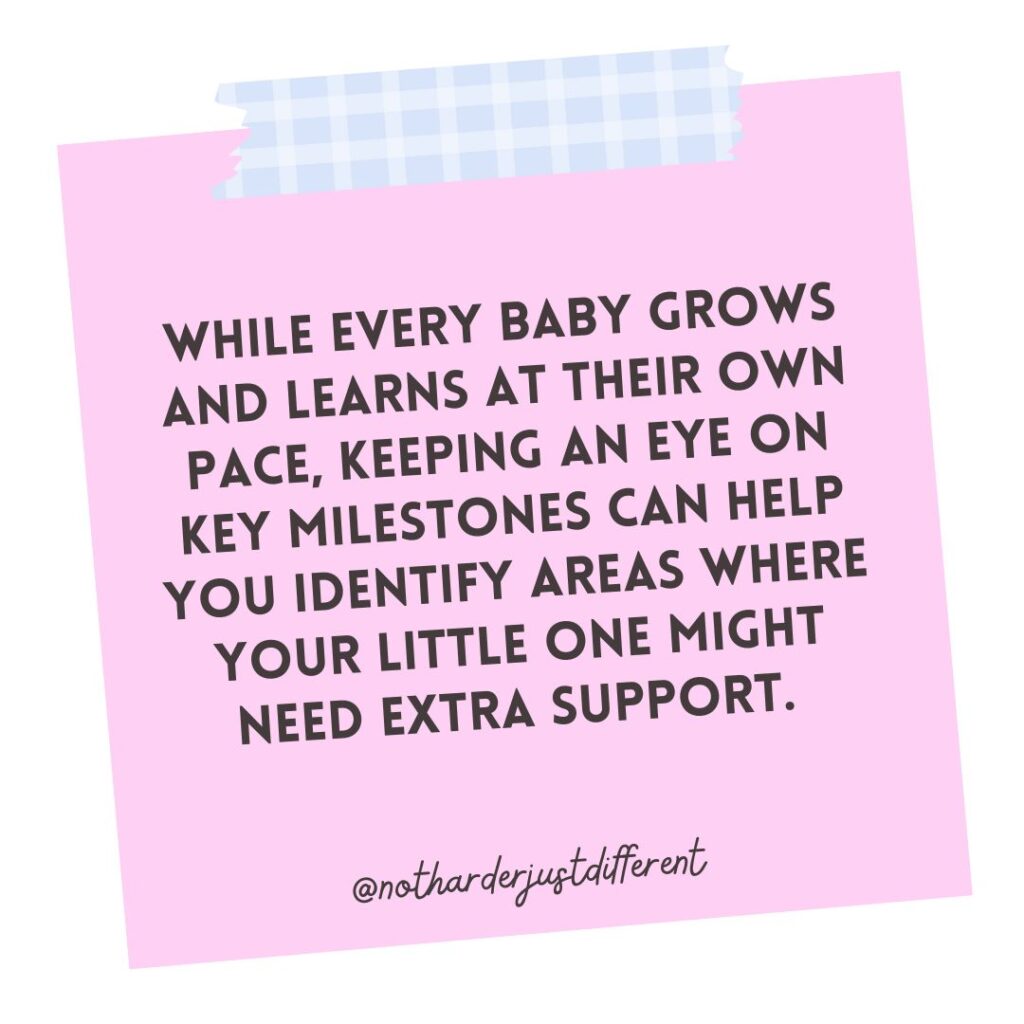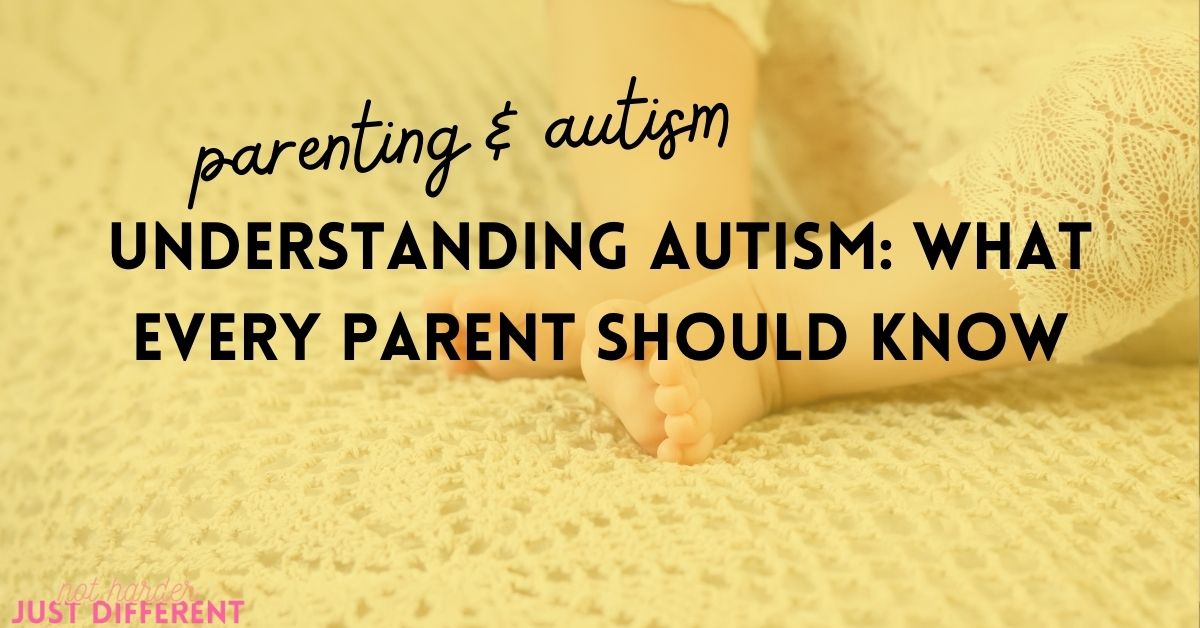Disclaimer: As a future Licensed Clinical Social Worker (LCSW) currently pursuing my master’s degree, I am passionate about sharing insights and information related to parenting, autism and homeschooling based on my personal experiences and research. However, the content shared on this blog is not intended to substitute professional advice, diagnosis, or treatment. Parenting is a deeply personal journey, and while I strive to provide valuable insights, every family and situation is unique. Readers are encouraged to consult with qualified professionals for personalized guidance tailored to their specific needs and circumstances.
Today, let’s chat about something that’s on many parents’ minds: spotting signs of autism in babies. It’s totally normal to have questions and concerns, especially when it comes to your precious little one’s development.
You see, babies are like little sponges, soaking up the world around them and growing by leaps and bounds every day. But for some babies, their developmental journey might unfold a little differently, and that’s okay! Understanding the early signs of autism in babies can help you provide the support and resources your little one needs to thrive.
First things first, I am not a professional. I am a mom of a child with autism, and I am in a master’s program to become an LCSW, and I’ve done a lot of my own research, but I am not going to tell you that I could diagnose your child. That’s unethical and not true. I simply want to give you some information that helped me on our journey to diagnosis in hopes of helping you.
Now, with that out of the way, let’s chat about autism! You might be wondering, “What exactly are the signs of autism in babies?” Great question! We’ll explore that in just a moment. But first, let’s take a deep breath and remember that every baby is unique. While certain behaviors and milestones can serve as red flags, it’s important to approach this topic with empathy, patience, and a whole lot of love. If you are worried or concerned about your child’s development, reach out to their pediatrician. Every baby is unique, and develops at their own pace.

Signs of Autism in Babies
Early Signs and Red Flags
Spotting signs of autism in babies requires keen observation and understanding of developmental milestones. While every baby develops at their own pace, certain behaviors and patterns may warrant closer attention. In this section, we’ll explore early signs and red flags that parents can look out for in their little ones.
- Limited Eye Contact: One of the early signs of autism in babies is limited eye contact. You might notice that your baby avoids making eye contact or seems disinterested in engaging with others visually. While it’s normal for babies to take some time to develop eye contact skills, persistent avoidance or lack of eye contact could be a potential red flag.
- Delayed Social Smiling: Babies are natural charmers, delighting us with their adorable smiles. However, delayed social smiling, where your baby doesn’t respond with a smile when smiled at, can be an early indicator of autism. Keep an eye out for your baby’s response to social cues and interactions, as social smiling is an important milestone in social-emotional development.
- Lack of Social Responsiveness: Babies with autism may exhibit a lack of social responsiveness, showing little interest in interactions or social games like peek-a-boo. You might notice that your baby doesn’t respond to your voice or attempts to engage them in playful interactions, preferring to focus on objects or activities instead.
- Unusual Repetitive Movements: Repetitive movements, such as hand-flapping, rocking, or body twisting, are common behaviors seen in babies with autism. While some degree of repetitive behavior is typical in infants as they explore their bodies and surroundings, excessive or unusual repetitive movements may warrant further evaluation.
- Difficulty with Joint Attention: Joint attention refers to the ability to share attention with others and focus on the same object or activity together. Babies with autism may struggle with joint attention, finding it challenging to follow your gaze or point towards objects of interest. Pay attention to your baby’s ability to engage in shared attention activities during playtime and interactions.

Monitoring Developmental Milestones
Tracking your baby’s developmental milestones is like embarking on a thrilling adventure, full of surprises and discoveries along the way. While every baby grows and learns at their own pace, keeping an eye on key milestones can help you identify areas where your little one might need extra support. Let’s explore how you can monitor your baby’s development and recognize potential signs of autism.
- Social and Emotional Milestones: Social and emotional milestones play a crucial role in your baby’s development. From smiling and babbling to showing affection and responding to your voice, these early indicators can provide valuable insights into your baby’s social-emotional well-being. Keep an eye out for your baby’s responses during social interactions and seek guidance if you have concerns about their social development.
- Language and Communication Skills: Language and communication skills begin to blossom during the first year of life, as your baby starts babbling, cooing, and eventually saying their first words. Pay attention to your baby’s attempts to communicate, whether through gestures, sounds, or words. Delayed or limited language development may be an early warning sign of autism, so trust your instincts and seek support if needed.
- Motor Skills and Coordination: Motor skills and coordination play a vital role in your baby’s ability to explore their environment and interact with the world around them. From reaching and grasping objects to crawling and eventually walking, these milestones mark important stages of physical development. Keep track of your baby’s motor milestones and discuss any concerns with your pediatrician or healthcare provider.
- Cognitive Development: Cognitive development encompasses your baby’s ability to think, learn, and solve problems. From exploring cause-and-effect relationships to imitating facial expressions and actions, these early cognitive skills lay the foundation for future learning and development. Pay attention to your baby’s curiosity, problem-solving abilities, and interest in exploring their surroundings as they grow and learn.
- Adaptive Skills and Self-Care: Adaptive skills and self-care abilities are essential for your baby’s independence and daily functioning. From feeding and dressing themselves to recognizing basic needs like hunger and thirst, these skills are crucial for your baby’s growing independence. Encourage your baby to explore and practice self-care tasks at their own pace, providing gentle guidance and support along the way.
Supporting Your Baby’s Development
Supporting your baby’s development is like laying the foundation for a bright and promising future. While every baby is unique, there are plenty of ways you can nurture their growth and help them reach their full potential. In this section, we’ll explore strategies and tips for supporting your baby’s development, regardless of their developmental trajectory.
- Create a Nurturing Environment: Creating a nurturing environment is key to supporting your baby’s development. Provide plenty of opportunities for sensory exploration, safe and stimulating toys, and warm, responsive interactions. Establishing a predictable routine can also help your baby feel secure and confident as they navigate the world around them.
- Foster Positive Relationships: Building positive relationships with your baby is essential for their social-emotional development. Spend quality time together, engage in interactive play, and respond promptly and sensitively to your baby’s cues and signals. Your loving presence and attentive care lay the groundwork for healthy attachment and emotional well-being.
- Encourage Communication and Language Development: Encouraging communication and language development starts from day one. Talk, sing, and read to your baby regularly, exposing them to rich language and meaningful interactions. Respond enthusiastically to your baby’s attempts to communicate, whether through sounds, gestures, or facial expressions, and encourage them to express themselves in their own unique way.
- Support Motor and Sensory Development: Supporting your baby’s motor and sensory development is all about providing opportunities for movement, exploration, and sensory experiences. Offer plenty of tummy time, floor play, and opportunities for reaching, grasping, and exploring different textures and objects. Pay attention to your baby’s sensory preferences and sensitivities, respecting their individual needs and boundaries.
- Seek Support and Guidance: Navigating the joys and challenges of parenthood can feel overwhelming at times, but remember, you’re not alone. Reach out to your healthcare provider, pediatrician, or early intervention services if you have concerns about your baby’s development. Connecting with other parents, joining support groups, and accessing resources in your community can also provide valuable support and guidance along the way.
Spotting signs of autism in babies is just the beginning of a beautiful journey filled with love, growth, and endless possibilities. Trust your instincts, ask for help, cherish each milestone, and remember, you’re doing an amazing job as a parent!

